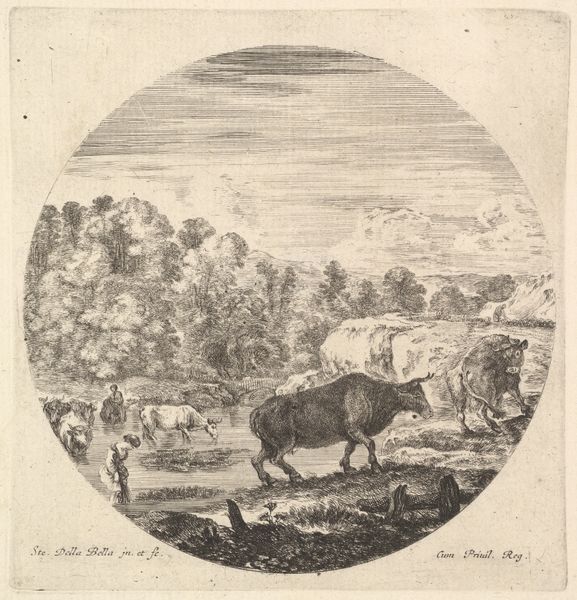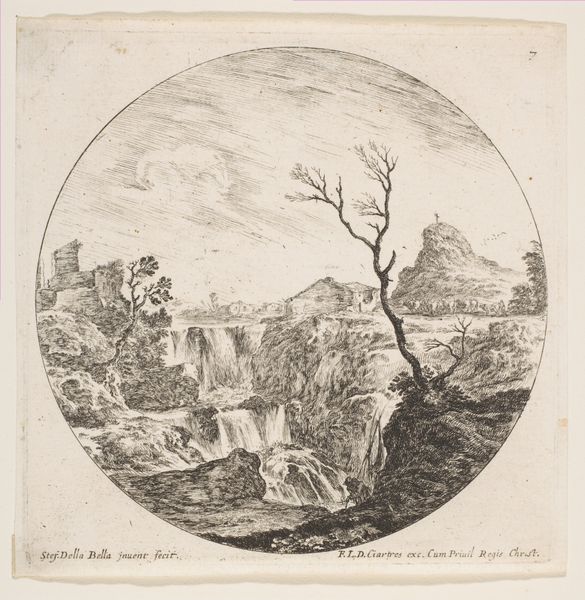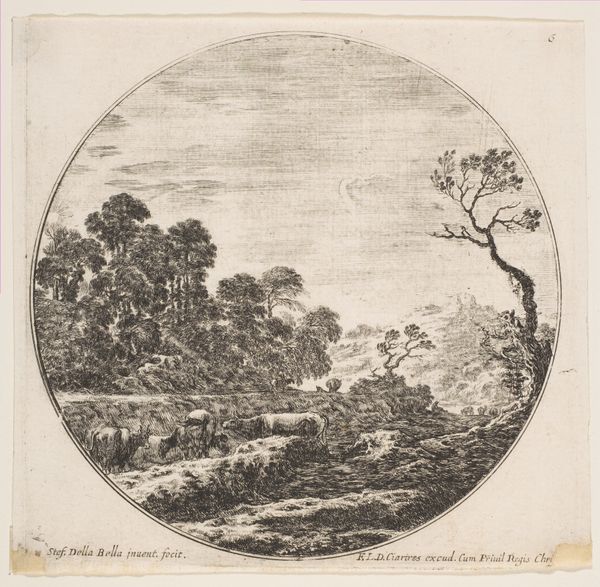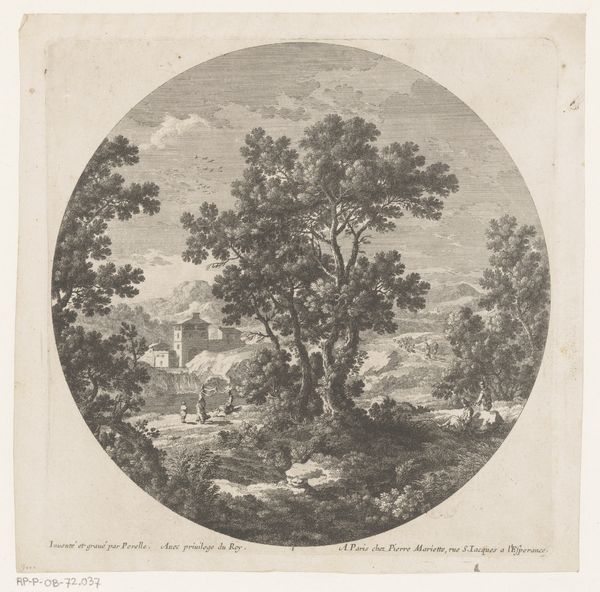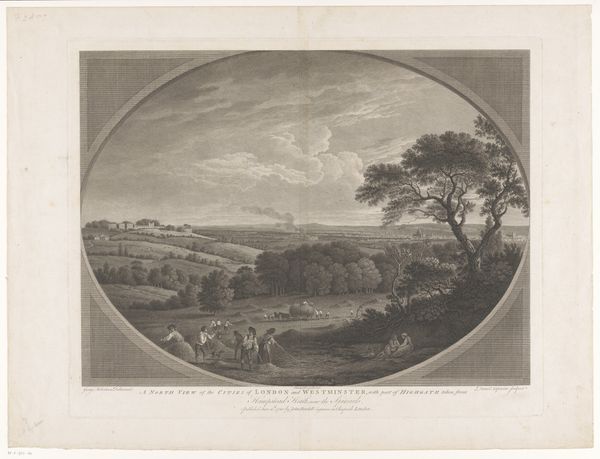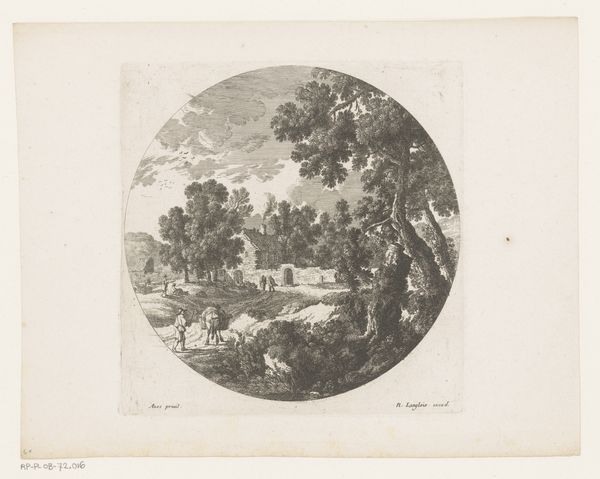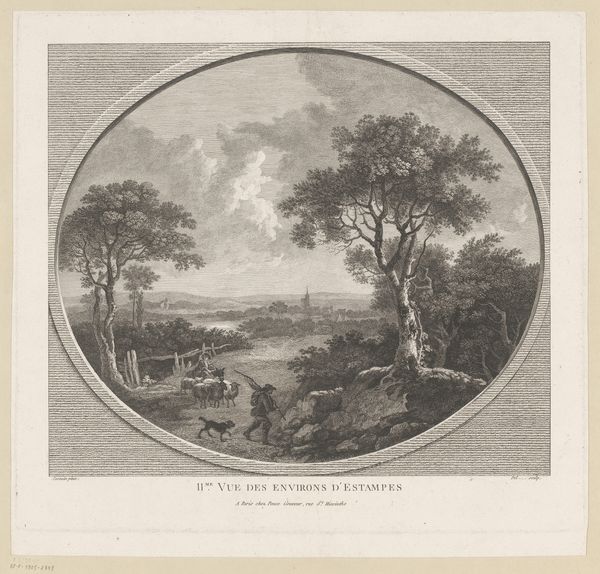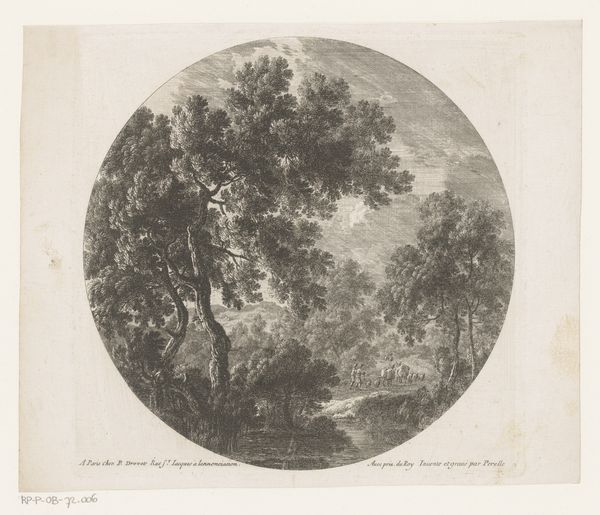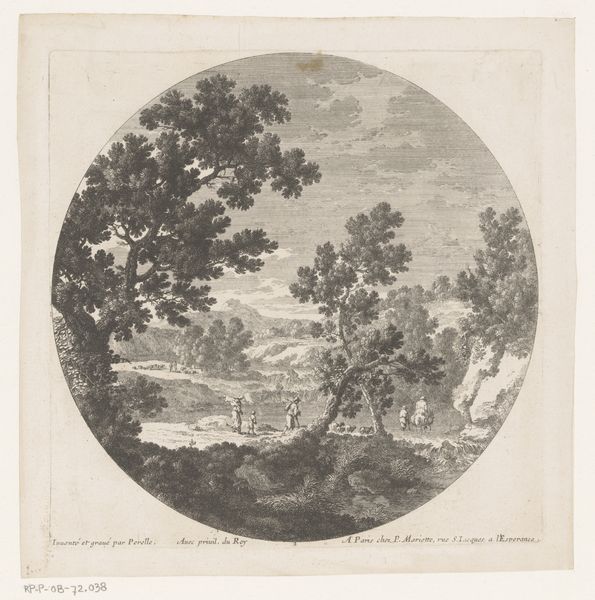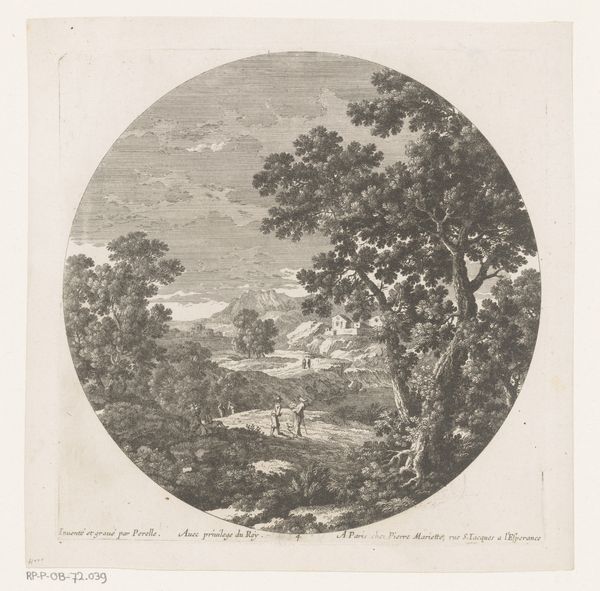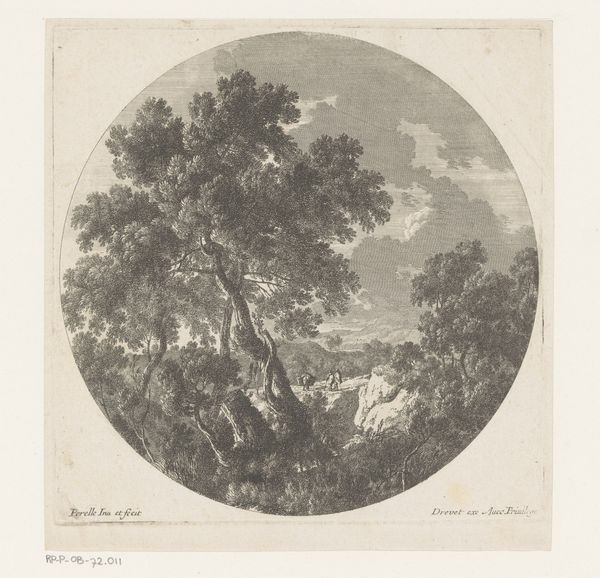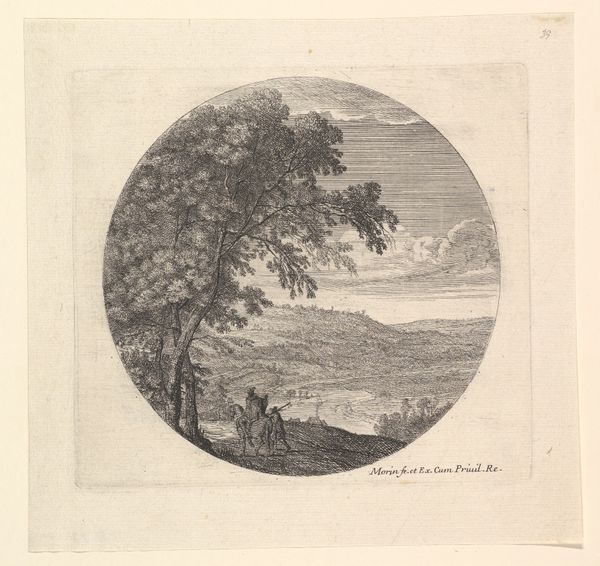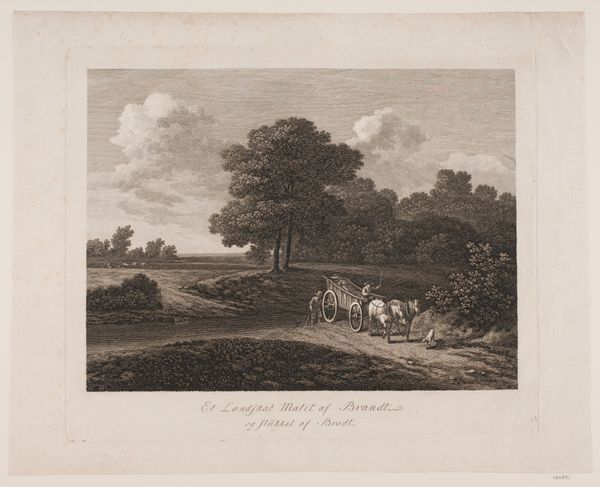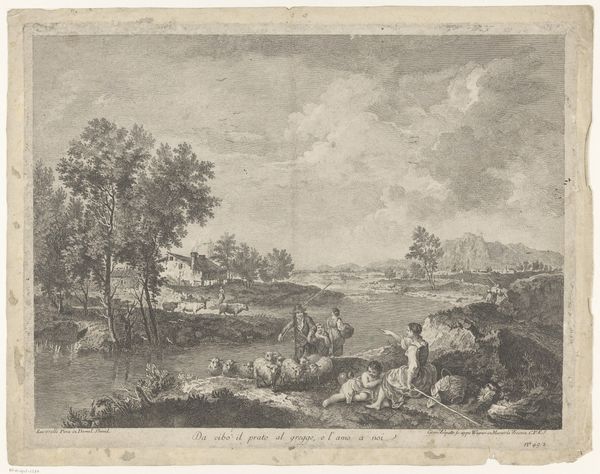
Plate 4: a Corinthian capital on the ground to left in the foreground, a monument with figures in low relief to left in the middleground, various animals and two shepherds to right, a round composition, from 'Roman landscapes and ruins' (Paysages et ruines de Rome) 1638 - 1648
0:00
0:00
drawing, print, etching
#
drawing
#
baroque
#
animal
# print
#
etching
#
landscape
#
italian-renaissance
Dimensions: Sheet: 5 3/8 x 5 3/8 in. (13.6 x 13.6 cm)
Copyright: Public Domain
This etching, one of Stefano della Bella's "Roman landscapes and ruins," presents a pastoral scene amidst the relics of antiquity. Dominating the foreground is a Corinthian capital, a symbol of classical architecture, lying discarded on the ground. This motif speaks of the passage of time and the transience of human achievement, a theme echoed by the ruined monument in the background. These ruins are not merely architectural remains but vessels of cultural memory. Throughout the Renaissance, ruins evoke the past and its impact on the present. Think of the classical orders as they appear again and again in architectural drawings across Europe. Here, they take on a melancholic tone, reflecting a collective awareness of loss. This image serves as a potent reminder that civilizations rise and fall, and their legacies are continuously reinterpreted. The emotional power lies in our subconscious recognition of this cycle, compelling us to reflect on our place within it. The ruins whisper stories of past grandeur, prompting a dialogue between epochs.
Comments
No comments
Be the first to comment and join the conversation on the ultimate creative platform.
